What's New
Displaying results 241 - 250 of 4052
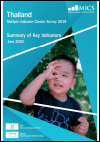
Resource | Publications,
The Global Multiple Indicator Cluster Survey (MICS) Programme was developed by UNICEF as an international multi-purpose household survey programme to support countries in collecting internationally comparable data on a wide range of indicators on the situation of children and women.
The National Statistical Office of Thailand (NSO) conducted its first MICS, which was part of MICS3 programme, in 2005-06. The current MICS is the fourth round under MICS6 programme. The survey provides one of the most important sources of alternative information to help monitor the progress of achieving the Sustainable Development Goals (SDGs).
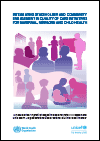
Resource | Publications,
Integrating stakeholder and community engagement in quality of care initiatives for maternal, newborn and child health was developed to guide policy makers and programme implementers on how stakeholder and community engagement can be incorporated into quality improvement initiatives for maternal, newborn and child health. It specifically provides operational guidance through concrete steps and actions on how quality improvement teams at national, district and facility level, can ensure collaborative engagement with relevant stakeholders and communities during in all steps quality improvement implementation.
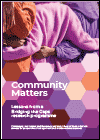
Resource | Publications,
The importance of community involvement in the design and development of health policies and programming has been formalised as a key principle within health policy agendas since the 1978 Alma Ata Declaration. A human rights and community empowerment approach has also been promoted as a key enabler for a successful response to the HIV epidemic. Such principles are also the foundation for harm reduction, where the involvement of people who use drugs is described as central to ensuring accessible, effective and responsive harm reduction services.

Resource | Publications,
A priority for Youth LEAD in 2019 was creating a strong organisational foundation between youth network partners, which led to the development of the Organizational Development and Change manual. The manual will be finalised and rolled out later in 2020. Similarly, the Legal Advocacy Toolkit, TeenGen and NewGen training was carried out in various countries, and more importantly, The YKP Small Grants Programme supported eleven YKP-led organisations in nine countries across Asia and the Pacific.
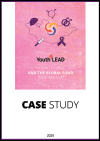
Resource | Publications,
Youth LEAD, the Asia Pacific Network of Young Key Populations, is one of the recipients of the Global Fund- CRG Strategic Initiative long-term capacity development grant. Within the grant, various YKP-led networks and organizations are supported to meaningfully engage in the GF funding request development process. Youth LEAD Mongolia (YLM) is one of the grantees to have received that support.
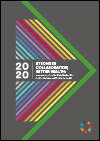
Resource | Publications,
The 2020 progress report is the first progress report of the Global Action Plan for Healthy Lives and Well-being for All initiative and covers the first eight months of implementation since its launch at the UN General Assembly in September 2019. In the early implementation phase, the signatory agencies have moved from the four key commitments made in the GAP – Engage, Accelerate, Align, Account – to action, and are beginning to lay the groundwork for sustainable impact and demonstrate progress. Building on existing collaborations, the agencies are also committed to leveraging the GAP to fill gaps in and add value to existing global, regional and national coordination mechanisms in the response to the COVID-19 pandemic.
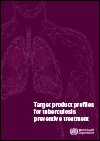
Resource | Publications,
Tuberculosis (TB) is a major yet preventable global health problem, with an estimated 10 million people developing TB and 1.5 million people dying every year worldwide, making it the leading infectious disease cause of death worldwide. One quarter of the global population is estimated to be infected with Mycobacterium tuberculosis. Treatment of TB infection, also known as TB preventive treatment (TPT), aims to prevent the development of TB disease, and is one of the critical components to achieve the ambitious targets of the WHO End TB Strategy. At the United Nations High-level Meeting on TB in 2018, countries committed to provide TPT to at least 30 million people in 2018-2022.
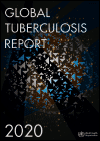
Resource | Publications,
TB remains the top infectious killer in the world claiming close to 4000 lives a day. Millions of people continue to fall ill with TB- a preventable and curable disease each year. The Global TB Report 2020 provides a comprehensive and up-to-date assessment of the TB epidemic, and progress in the response, at global, regional and country levels in the context of global commitments and strategies.
The report features data on disease trends and the response to the epidemic in 198 countries and territories. This includes trends in TB incidence and mortality, data on case detection and treatment results for TB, multidrug-resistant TB (MDR-TB), TB/HIV, TB prevention, universal health coverage as well as financing. Also included is an overview of pipelines for new TB diagnostics, drugs and vaccines.
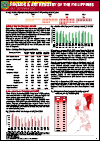
Resource | Fact Sheets,
From July to September 2020, there were 1,875 confirmed HIV-positive individuals reported to the HIV/AIDS & ART Registry of the Philippines (HARP). Twenty-one percent (393) had clinical manifestations of advanced HIV infectiona at the time of testing.
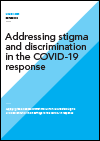
Resource | Publications,
The UNAIDS Secretariat, as co-convener of the Global Partnership for Action to Eliminate all Forms of HIV-related Stigma and Discrimination (Global Partnership), was tasked to develop this brief, based on consultations with its Technical Working Group (TWG), to provide evidence-informed guidance to countries on the intersection of stigma related to HIV and COVID-19 in national responses.





